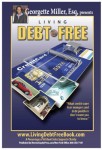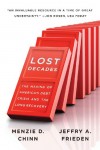Debt
What role does war play in political development? Our understanding of the rise of the nation-state is based heavily on the Western European experience of war. Challenging the dominance of this model, Blood and Debt looks at Latin America’s much different experience as more relevant to politics today in regions as varied as the Balkans and sub-Saharan Africa.
The book’s illuminating review of the relatively peaceful history of Latin America from the late eighteenth through the early twentieth centuries reveals the lack of two critical prerequisites needed for war: a political and military culture oriented toward international violence, and the state institutional capacity to carry it out. Using innovative new data such as tax receipts, naming of streets and public monuments, and conscription records, the author carefully examines how war affected the fiscal development of the state, the creation of national identity, and claims to citizenship. Rather than building nation-states and fostering democratic citizenship, he shows, war in Latin America destroyed institutions, confirmed internal divisions, and killed many without purpose or glory.
Forget what”they” have told you. False financial information spreads like a virus and engenders fear, which can take you down financially. With Living Debt Free, you gain empowerment and support as well as accurate knowledge of how to build economic stability. Take advantage of the one legitimate business strategy that can free you from debt and learn to add strategies that assert your power to remain debt-free. Then relax and watch your financial future become more secure everyday.
How does cooperation emerge in a condition of international anarchy? Michael Tomz sheds new light on this fundamental question through a study of international debt across three centuries. Tomz develops a reputational theory of cooperation between sovereign governments and foreign investors. He explains how governments acquire reputations in the eyes of investors, and argues that concerns about reputation sustain international lending and repayment.
Tomz’s theory generates novel predictions about the dynamics of cooperation: how investors treat first-time borrowers, how access to credit evolves as debtors become more seasoned, and how countries ascend and descend the reputational ladder by acting contrary to investors’ expectations. Tomz systematically tests his theory and the leading alternatives across three centuries of financial history. His remarkable data, gathered from archives in nine countries, cover all sovereign borrowers. He deftly combines statistical methods, case studies, and content analysis to scrutinize theories from as many angles as possible.
Tomz finds strong support for his reputational theory while challenging prevailing views about sovereign debt. His pathbreaking study shows that, across the centuries, reputations have guided lending and repayment in consistent ways. Moreover, Tomz uncovers surprisingly little evidence of punitive enforcement strategies. Creditors have not compelled borrowers to repay by threatening military retaliation, imposing trade sanctions, or colluding to deprive defaulters of future loans. He concludes by highlighting the implications of his reputational logic for areas beyond sovereign debt, further advancing our understanding of the puzzle of cooperation under anarchy.
Product Features
- Used Book in Good Condition
If you’re afraid to open your bills, if you’ve never added up how much you owe, if you can’t even imagine being debt-free, it’s time to join the thousands of people Gail Vaz-Oxlade has helped. Her straightforward approach to money management is based on self-control, hard work, and prioritizing what’s really important. Debt-Free Forever is Gail’s step-by-step guide, and she’ll show you how to:
figure out how much you’ve actually been spending
• calculate how much you owe—and what it’s costing you
• build a budget that works
• maximize your debt repayments so you can be free of consumer debt in 3 years or less
• prepare for a rainy day so it doesn’t mean a major setback
• set goals for your new, debt-free life.
Make no mistake: Getting out of debt isn’t easy. But in Debt-Free Forever, Gail gives you a clear strategy and the steps needed to implement it. So if you’re finished with excuses, overdue notices, and maxed-out credit cards, pick up this book, follow Gail’s plan, and start becoming debt-free forever.
A comprehensive look at the enormous growth and evolution of distressed debt, corporate bankruptcy, and credit risk default
This Third Edition of the most authoritative finance book on the topic updates and expands its discussion of corporate distress and bankruptcy, as well as the related markets dealing with high-yield and distressed debt, and offers state-of-the-art analysis and research on the costs of bankruptcy, credit default prediction, the post-emergence period performance of bankrupt firms, and more.
THE 4 LAWS OF FINANCIAL PROSPERITY (Formerly The Four Laws of Debt Free Prosperity)
Inspired by actual occurrences, this entertaining and captivating book shows that how much a person earns isn’t nearly as important in achieving financial security as most people think-that nearly anyone, on any income, can achieve debt-free prosperity by applying the four laws in the story.
Inspired by a true story . . . you will discover four basic laws that will change your life.
Simple principles . . . learn how to implement the powerful core principles that financially successful people understand and live by to eliminate debt and accumulate wealth.
Change your financial life . . . anyone on any income can become debt-free and achieve financial independence by applying the principles from this book.
Thousands have bought for family members and friends! Over one hundred thousand copies sold worldwide!
The ABCs of Money offers the basic financial education that we all should have received in high school. Get: * Debt reduction tips that you’ll never learn from VISA. * Real estate solutions the bank will never offer. * Wall Street secrets your broker never tells you. * Energy saving tips worth thousands of dollars each year off of your bills As TD AMERITRADE chairman Joe Moglia says, “College students need this information before they get their first credit card. Young adults need it before they buy their first home. Empty nesters can use the information to downsize to a sustainable lifestyle, before they get into trouble.” Stop making everybody else rich and start scoring assets, gains and savings for yourself.
Discover the Top 5 Secrets to Graduating College Debt-Free! If you’ve ever wondered whether it’s true … REALLY TRUE … that … you can … • Graduate college owing little to NO debt … • Have someone else pay for your college education… • Not have your parents pay a single dime for your college education… • Get money for college without you having the highest GPA or SAT scores… • Get paid to go to college • Not have to worry or stress about how you will pay next semester’s tuition • Win scholarships when everyone else says it’s impossible or a waste of time … then … allow Shanice Miller to PROVE it to you. Shanice entered the summer before college without having any knowledge about college or scholarships and was easily on her way to being over $200,000 in debt when she graduated. After realizing just how much college was going to cost, she knew she had to do something fast so she started applying for scholarships. By graduation day, Shanice had graduated college 100% debt-free and had even received over $10,000 in refund checks from the college. What turned Shanice Miller around? The answers are between the covers of How to Graduate College Debt-Free With Money in the Bank. Now All of These College and Scholarship Secrets Are Yours!
Give your business a successful credit and collections plan with this easy and clear guide
Over 100,000 businesses have slow or non-paying customers. Yet very few actually have a workable plan for claiming the missing revenue that results. This book gives you a complete solution and tool set to ensure your business maximizes its collections while maintaining an effective, profitable credit plan.
You’ll discover how to set up an efficient in-house credit policy that not only lets you collect more debts, but also boost sales, increase cash flow, and grow profits. Step-by-step credit management instructions show you how to weed out bad-paying customers, add more good-paying customers, collect on past-due balances, avoid bad debt, and limit credit risk.Contains all needed forms to set up and implement an effective credit policyAuthor is a popular columnist for several newspapers and national magazines, and appears regularly in the media as a go-to authority on debt
Get Paid enables you to decide what matters most to your business when it comes to billing, payment terms, pricing, cash flow, and more, then set up the systems to meet these goals and increase profitability.
A clear, authoritative guide to the crisis of 2008, its continuing repercussions, and the needed reforms ahead.
The U.S. economy lost the first decade of the twenty-first century to an ill-conceived boom and subsequent bust. It is in danger of losing another decade to the stagnation of an incomplete recovery. How did this happen? Read this lucid explanation of the origins and long-term effects of the recent financial crisis, drawn in historical and comparative perspective by two leading political economists.
By 2008 the United States had become the biggest international borrower in world history, with more than two-thirds of its $6 trillion federal debt in foreign hands. The proportion of foreign loans to the size of the economy put the United States in league with Mexico, Indonesia, and other third-world debtor nations. The massive inflow of foreign funds financed the booms in housing prices and consumer spending that fueled the economy until the collapse of late 2008. This was the most serious international economic crisis since the Great Depression of the 1930s.
Menzie Chinn and Jeffry Frieden explain the political and economic roots of this crisis as well as its long-term effects. They explore the political strategies behind the Bush administration’s policy of funding massive deficits with foreign borrowing. They show that the crisis was foreseen by many and was avoidable through appropriate policy measures. They examine the continuing impact of our huge debt on the continuing slow recovery from the recession. Lost Decades will long be regarded as the standard account of the crisis and its aftermath.










